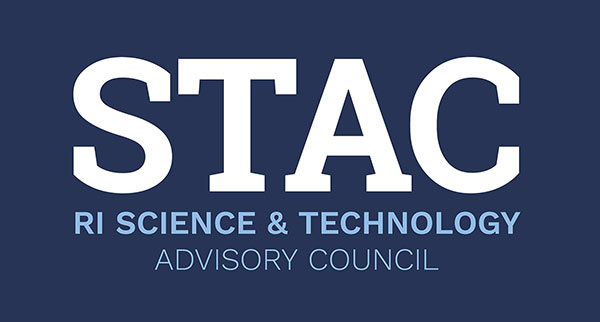With the goal to make RI an international leader in understanding and predicting the response of marine organisms and marine ecosystems to climate variability, Governor Lincoln D. Chafee and the Rhode Island Science & Technology Advisory Council (STAC) today announced the recipients of the 2013 Rhode Island Research Alliance Collaborative Research Grants.

The awards, totaling $810,541 will fund six projects, representing 18 scientists from 5 research institutions throughout the state. These grants are the seventh round of awards aimed at facilitating collaborative research in Rhode Island and support STAC’s partnership with the National Science Foundation’s (NSF) Experimental Program to Stimulate Competitive Research (EPSCoR). To date, STAC has invested $8.5 million in collaborative research projects that have yielded a return of $36 million back to the state in the form of grants for continued research, new federal programs, infrastructure improvements, commercialization of new products and venture funding for new companies.

This grant cycle called for proposals that addressed the three research questions related to RI NSF EPSCoR: What are the impacts of climate change on marine life? The 2013 award recipients include scientists pursuing research in aquaculture diseases, ocean acidification, fisheries management and electro-microbiology. Winning teams include scientists from the University of Rhode Island, Brown University, Rhode Island College, Roger Williams University and the US Environmental Protection Agency.
More about the 2013 Collaborative Research Grants Awardees
RI Seaweed Biodiversity Project: Establishing a DNA-Based Framework for Understanding Seaweed Range Expansions in RI Waters
Invasive species of plants and animals can present huge problems for both coastal management and biosecurity. Working together, these two investigators will use genomics to identify algal marine “bio-invaders” and build a library of seaweed barcodes. This data will lead to the development of early detection models that will enhance the biosecurity of Narragansett Bay and its surrounding waters.
Collaborators:
Christopher Lane, University of Rhode Island
Brian Wysor, Roger Williams University
Temperature-mediated Changes in RI’s Benthic Community: What Are the Implications for Local Food Webs and Fisheries?
In Southern New England, the population of winter flounder, an important species for both commercial and recreational fisheries, has declined since the 1980s. Coincident with this is a dramatic population increase of summer flounder and blue crabs, natural predators of juvenile winter flounder, which have migrated north to follow warming waters. This team will study the population dynamics of these three species in order to improve fisheries management strategies and return winter flounder to RI waters.
Collaborators:
David Taylor, Roger Williams University
Jeremy Collie, University of Rhode Island
The Pathogenic Cause and Impact of the Local Sea Star Wasting Disease
Starfish from New Jersey to the Gulf of Maine have been victims over the past two years of a mysterious and deadly infectious disease. This collaboration brings together six researchers from three different institutions with ecological, veterinary, molecular, microbial, and aquaculture expertise to identify what pathogen is causing these deaths before it can spread to additional species in the marine environment.
Collaborators:
Gary Wessel, Brown University
Roxanna Smolowitz, Roger Williams University
Marta Gomez-Chiarri, University of Rhode Island
Edward Baker, University of Rhode Island
Niels-Viggo Hobbs, University of Rhode Island
Estimating the Potential for Evolutionary Adaption of Marine Organisms to Climate Change
This project focuses on a main objective of the NSF EPSCoR program: to make RI an international leader in understanding and predicting the response of marine organisms and marine ecosystems to climate variability. The team will use native marine shrimp to study the evolutionary potential of marine species to warming waters. Funding will also be used to train the next generation of marine scientists and share information on career pathways in the private industry, government agencies and higher education.
Collaborators:
Jason Kolbe, University of Rhode Island
Carol Thornber, University of Rhode Island
Jason Grear, US EPA
Electric Microcable Bacteria in Narragansett Bay Sediments
Coastal dead-zones are spreading globally due to increased human pressure and climate change, resulting in sulfidic conditions that are toxic to marine life. Working in the new area of electromicrobiology, this team believes microbial bacteria are evolving to detoxify sediment making areas safe again for marine life. If correct, these findings will open new opportunities in bioenergy, nanotechnology and material science.
Collaborators:
Jeremy Rich, Brown University
Bethany Jenkins, University of Rhode Island
Ocean Acidification Effects on Plankton Community Composition and Food Web Energy Flow
Ocean acidification and its impact on food webs has quickly emerged as a pressing global issue. While studies have been conducted on how certain species react to climate change stressors, understanding whole marine community responses is a challenge that is limiting progress in predicting effects of on food web structure and function. This research will incubate whole plankton communities for several weeks under manipulated pH and environmental conditions in order to identify the sensitivity of food webs to future environmental changes.
Collaborators:
Susanne Menden-Deuer, University of Rhode Island
Tatiana Rynearson, University of Rhode Island
Breea Govenar, RI College
Jason Grear, US EPA
